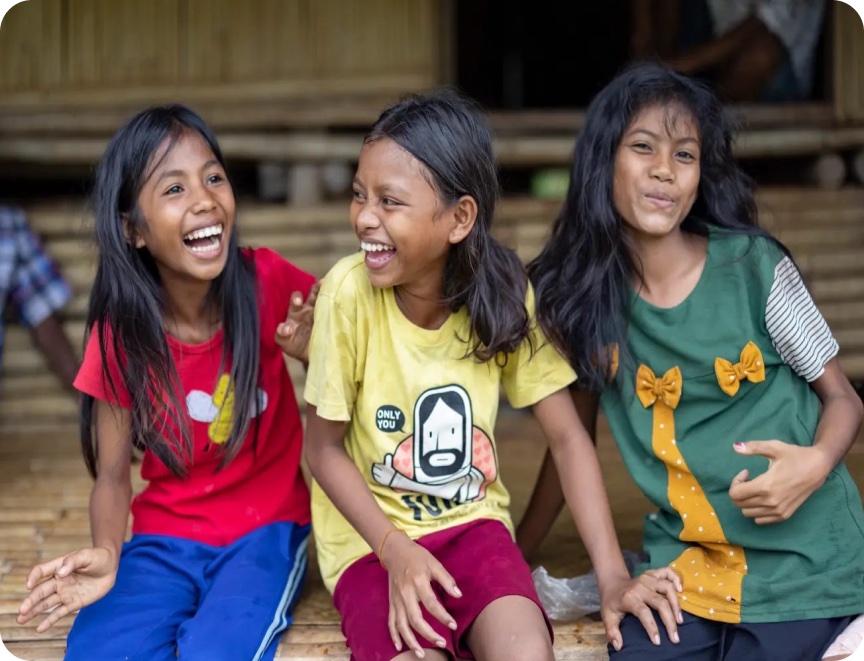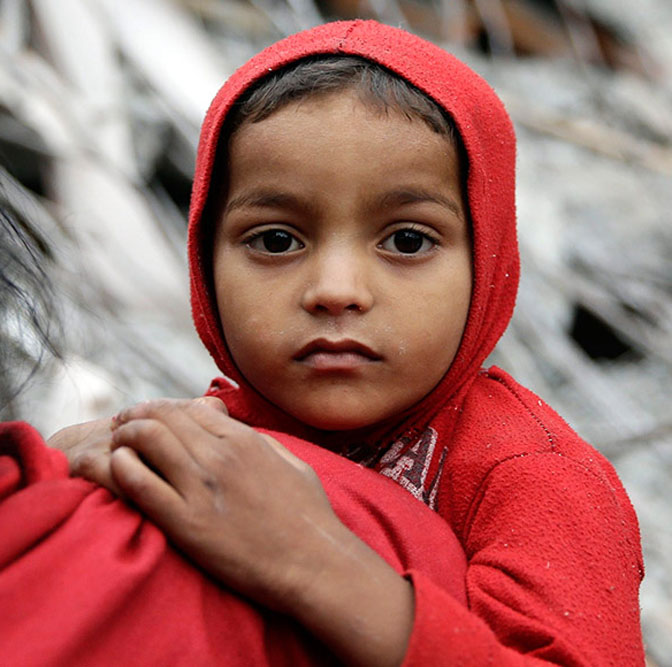Afghanistan: How is ChildFund is supporting women and children during a forgotten crisis?
Three years since the transition of political power to the Taliban, the economic situation for children, families and communities has continued to deteriorate across Afghanistan.
According to the United Nations, in 2024, 23.7 million people – more than half of the country’s population – will need humanitarian assistance. In addition, 65 percent of families reported directly experiencing an economic shock, a 20 percent increase compared to 2022.
Life in Afghanistan has been marked by decades of insecurity and conflict, recurrent disasters, entrenched poverty and escalating climate-induced crises. As a result there are a multitude of factors that contribute to increasing the vulnerability of children, families and communities, including:
Economic crisis
The political transition in August 2021 exacerbated underlying fragilities that are limiting livelihood opportunities in both urban and rural communities.
Climate-induced crises
After a third consecutive year of drought-like conditions alongside rising temperatures, precipitation patterns have altered across the country, diminishing people’s access to water and damaging food supplies.
Recurrent earthquakes
Lying on multiple fault lines, Afghanistan remains highly vulnerable to multiple earthquakes. In 2023, nearly 400 earthquakes hit the country, including three 6.3 magnitude shocks within eight days in Herat Province that destroyed 40,000 homes and left 275,000 people in need of urgent support.
Restrictions on rights of women and girls
Barriers to women and girls’ participation in public life resulted in significant setbacks in their access to education and employment with many subjected to forced marriage and other forms of gender-based violence.
The country is in crisis. But, above all, it is a child rights crisis.
Afghanistan has one of the highest youth populations in the world, and almost 8 million children – one in three – face crisis levels of hunger. Just to put food on the table, parents are forced to let their children engage in hazardous labour and early marriage.
For women, especially those at the head of their families, rising hunger as well as ongoing restrictions on their rights and participation in public life has left them struggling to meet their own and their families’ basic needs. Under Taliban rule, women are left without the right to work or leave the house independently, and are becoming even more vulnerable and often forced to resort to emergency coping mechanisms.
Zabeeda, lives with her five children and sick husband in rural Afghanistan, and despite working everyday as a cleaner in people’s homes, she barely makes enough money to purchase bread. Out of desperation, she was forced to sell one of her children, Farshad. At the time, it was thought as the only way to save the rest of the family from desperate hunger.
After joining ChildFund’s Cash for Food program, Zabeeda could buy food, clothes for children and medicine for her husband.
“They gave us money with which I bought food (oil, rice, and pulses) and clothes for my children. I bought medicine for my husband. Our living conditions have thankfully improved. I feel many changes,” she said.
The Power of Cash during Humanitarian Emergencies
Much like the cash we use in our everyday lives, the provision of cash assistance after crises is a dignified and effective form of humanitarian assistance. Cash empowers people by giving them the opportunity to determine how to meet their most pressing needs while also fueling the local economy.
ChildFund and our partners, WeWorld and the Rural Rehabilitation Association for Afghanistan (RRAA), are supporting families to access lifesaving food supplies and other essential items through cash transfers. For women-headed households, this type of assistance plays a critical role in helping them fulfill their family’s needs and build a future.
How ChildFund is supporting women-headed households in Afghanistan with cash assistance?
Aziz was widowed four years ago. Since then, growing economic insecurity, and recurrent natural disasters left her struggling to feed her four children. Her youngest daughter become acutely malnourished leaving Aziz fearing for her health and wellbeing.
“I have been through a lot of challenges after my husband died. After he passed, there was not any income to feed the children and respond to our needs,” she said.
“Due to there not being enough food available, my small daughter became malnourished, and I was forced to borrow money from my neighbours and relatives to treat my daughter”.
Each day Aziz would go house to house baking bread, and at night she would tailor clothes as her children slept. But however hard she worked it was never enough.
“During the night, I was tailoring for people, and during the day I was going out around the village to baking bread as labour to earn something to feed my children.”
Aziz’s family was one of 500 families who were provided with cash assistance to help them meet their most pressing needs in the wake of growing economic crisis and increasing food and water scarcity.
“[The cash] helped me a lot to provide food three times during the day, provide clothes, and education materials for my children, and treat them when they faced sickness. It has made my life better.”
While restrictive policies continue to hinder women’s ability to engage in economic activities, and their access to services and assistance, it is critical to support families like Aziz’s to purchase lifesaving essential items.
Donate today to help children and their families living in protracted crises access lifesaving food and essential items.

































